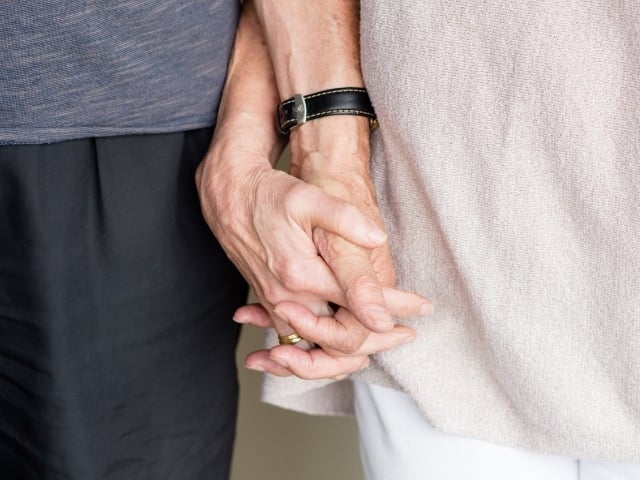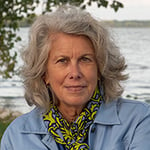Published: February 14, 2024

No matter our age, we all seek some degree of intimacy if we have a cherished partner.
But what exactly does that mean? First let’s define intimacy.
“Intimacy can be described as a sense of closeness, emotional connection, and vulnerability between partners. In addition, it can involve a deep understanding and acceptance of each other and a willingness to tell thoughts, feelings, and experiences,” according to the Editorial Team at BetterHelp, a popular online therapy service.
As the definition makes clear, intimacy comes in different shapes - 4 according to BetterHelp.
- Physical intimacy or touching, such as kissing, sexual contact and hugging;
- Emotional intimacy in which thoughts, feelings and experiences are shared;
- Intellectual intimacy, which can fostered by engaging in conversation, hobbies, classes and the like;
- Spiritual intimacy, often associated with a belief system or values, such as religion or spirituality, but it can also involve a common passion or goal.
Intimacy challenges for older adults
As we age our body, emotional well-being and mental capacity changes, and these changes can create barriers or challenges to maintaining healthy levels of intimacy.
“There are many different ways to have sex and be intimate—alone or with a partner. The expression of your sexuality could include many types of touch or stimulation. Some adults may choose not to engage in sexual activity, and that’s also normal,” according to the National Institute on Aging.
The physical barriers are varied, according to the National Council on Aging. “These changes may range from vaginal dryness and decreased libido in women to erectile dysfunction in men. Chronic pain, limited mobility, and recovery from surgery are other potential barriers to physical closeness,” NCOA explains.
Other challenges can include pain and grief from past relationships, memory impairment, negative body image, and depression or other mental health issues.
Developing closeness through friendships
Many men and women, either by circumstance or choice, do not have a partner and instead turn to a close friend or circle of friends for sharing intimate feelings, beliefs and experiences.
Take Jane Fonda. “To start a new relationship at 86, are you kidding? I mean, some do, but I wouldn't want to. I am busier than I've ever been in my life, and there is no room for a relationship. And I'm very happy about that,” she said in a recent NextAvenue interview in which she talked about her close friendship with Lily Tomlin.
Research finds that close friendship connections are key to physical, mental and emotional health.
“A new study of older adults finds that even momentary social interactions with friends reduce fatigue and stress. It follows a wealth of earlier research showing that friendships later in life forestall dementia, Alzheimer’s and physical decline,” writes Jon Marcus for AARP.
Finding new relationships at a CCRC
Also as we age, our circle of friends begins to shrink due to illness and death, or we may find ourselves widowed after many years of marriage. Making new friends and meeting people to date can be challenging.
A life plan or retirement community “facilitates and fosters new friendships and camaraderie in a number of important ways,” writes Brad Breeding, president and co-founder of myLifeSite.
“For example, new resident ambassador programs and welcome committees not only get people acclimated to their new surroundings, they help introduce new residents to their neighbors. The dining experience at CCRCs and other types of senior living communities also is designed to nurture the formation and continuation of friendships. And there are other community design features intended to encourage social interaction and friendships too, like sidewalks and mailbox banks.
But perhaps the top way that communities like these enable new friendships to flourish is through their many events and group activities. Classes, hobby groups, volunteer projects, cultural outings, social events — all of these group settings are wonderful opportunities for residents to meet new prospective friends with shared interests and continue to nurture those friendships on a regular basis going forward.”
The Truth About Sexuality and Aging
No matter our age, sexuality is a vital part of our identity and our overall health. It’s important to know the facts about, not the myths and societal misperceptions.
 In the past, Molly Kavanaugh frequently wrote about Kendal at Oberlin for the Cleveland Plain Dealer, where she was a reporter for 16 years. Now we are happy to have her writing for the Kendal at Oberlin Community.
In the past, Molly Kavanaugh frequently wrote about Kendal at Oberlin for the Cleveland Plain Dealer, where she was a reporter for 16 years. Now we are happy to have her writing for the Kendal at Oberlin Community.
About Kendal at Oberlin: Kendal is a nonprofit life plan community serving older adults in northeast Ohio. Located about one mile from Oberlin College and Conservatory, and about a 40 minute drive from downtown Cleveland, Kendal offers a vibrant resident-led lifestyle with access to music, art and lifelong learning.




